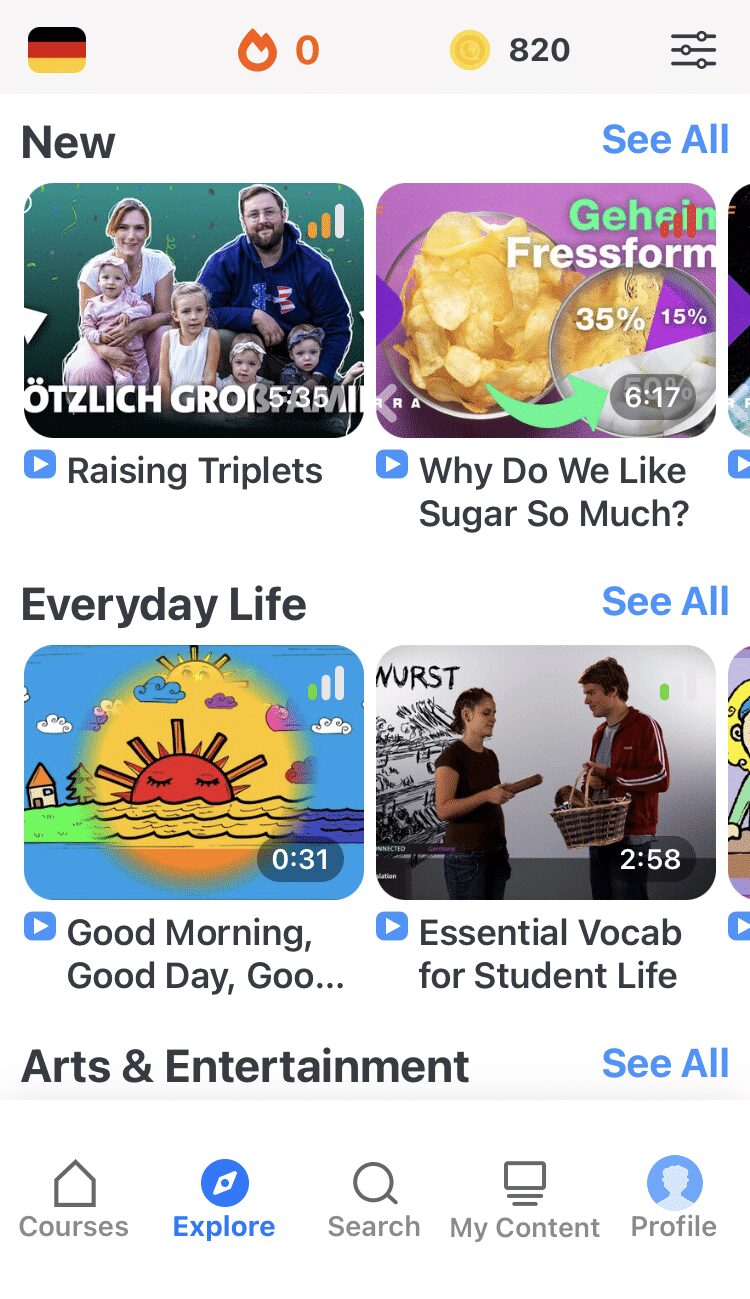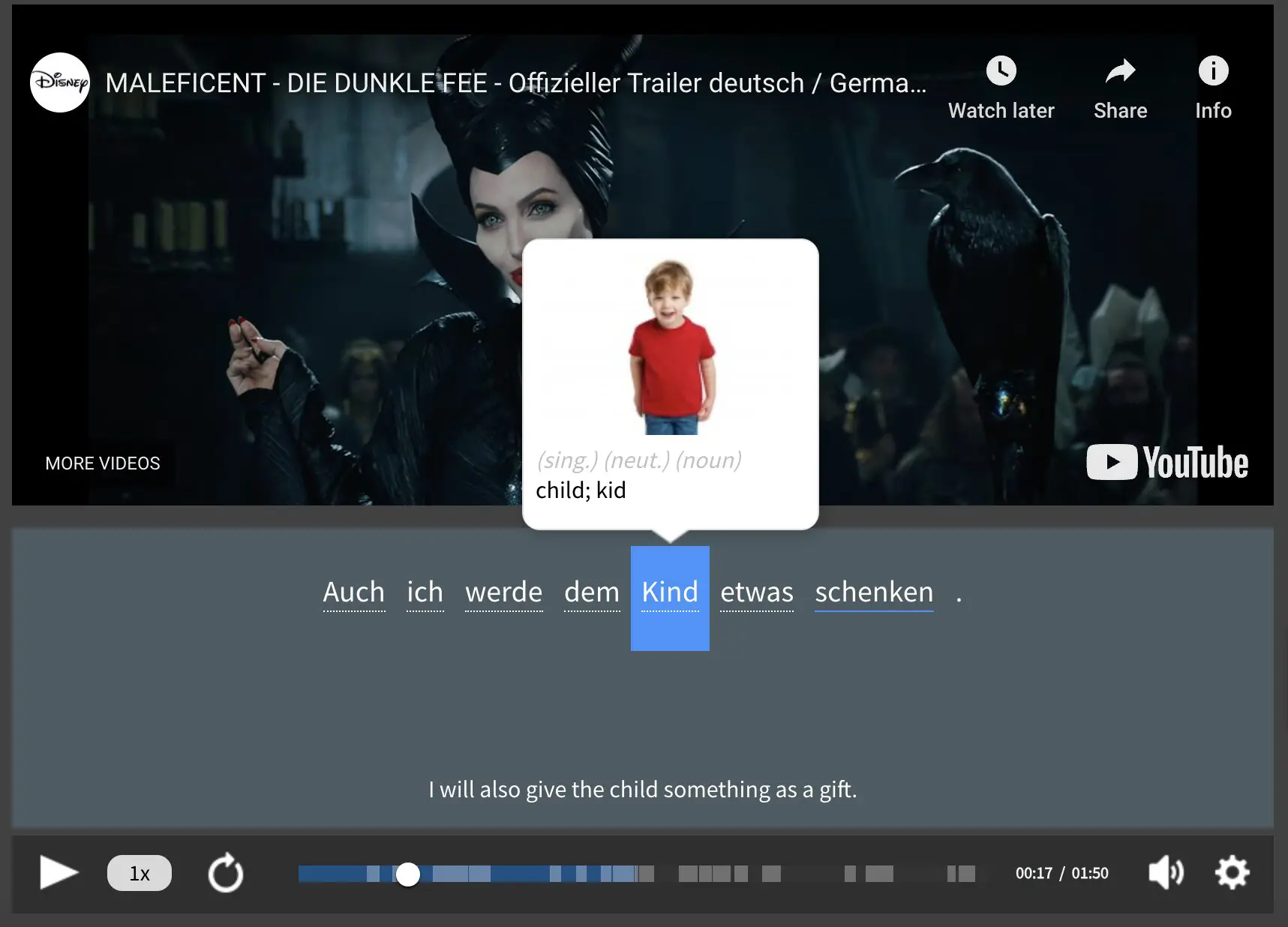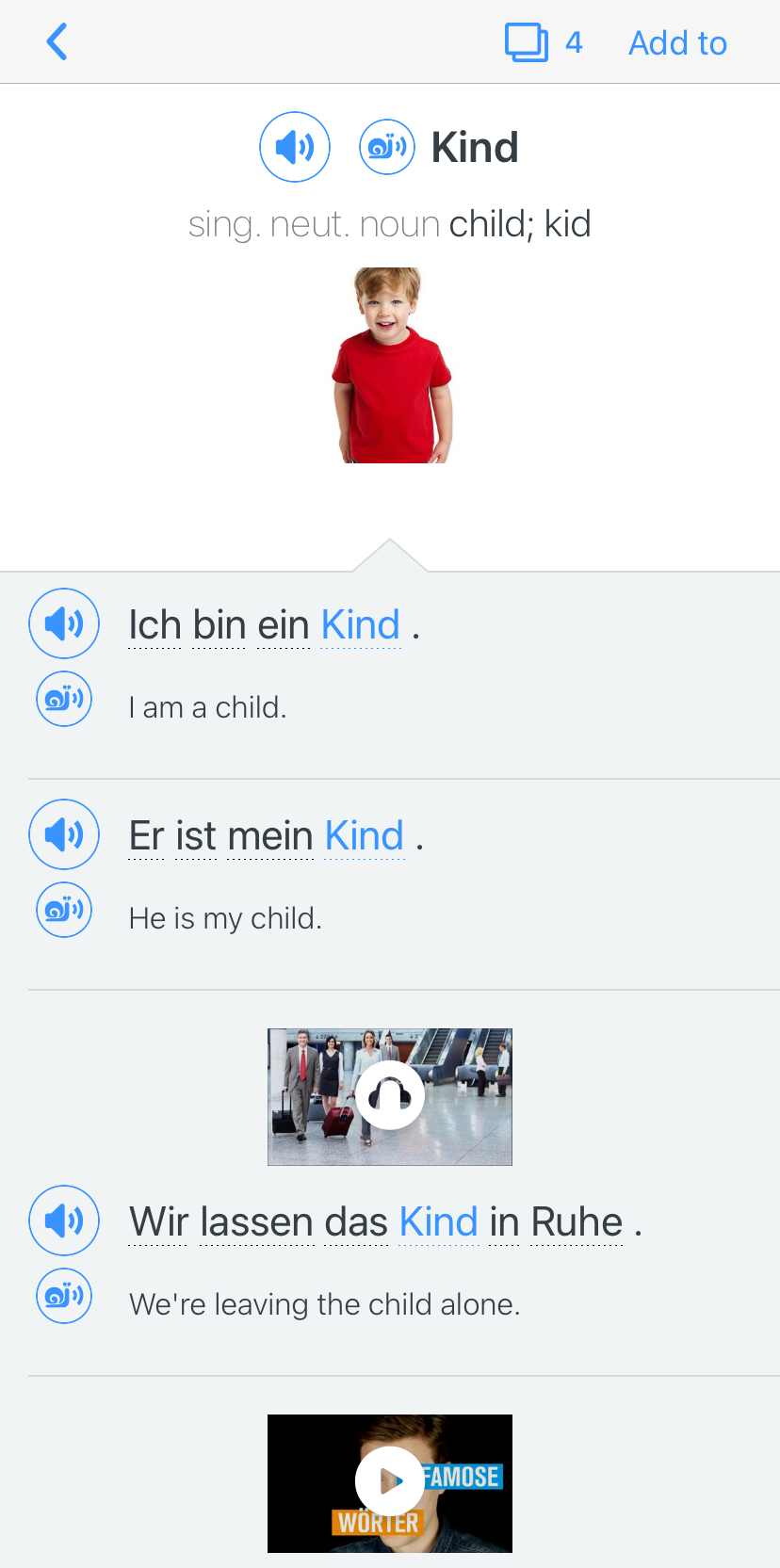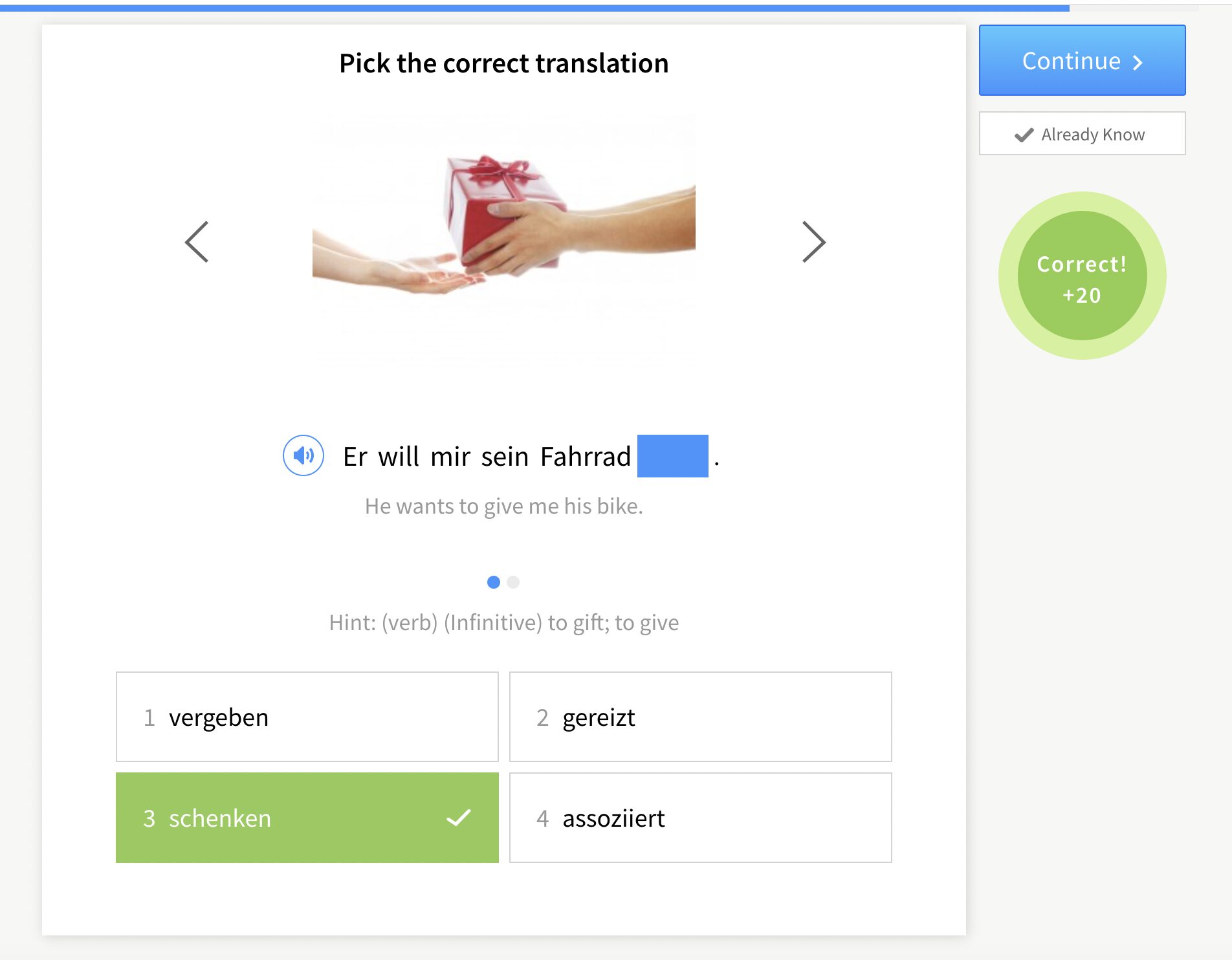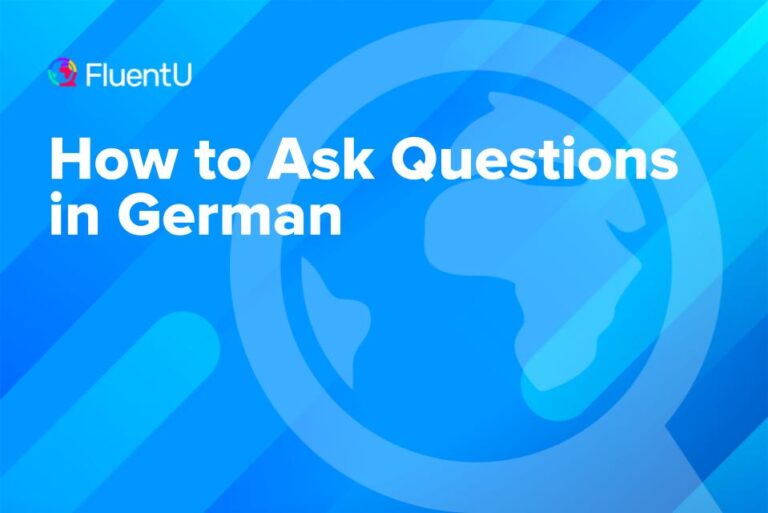How to Learn Conversational German

Conversation comes easily in your native language, but you may find it tricky to have meaningful conversations in German still.
I’m here to tell you that it’s never too late to learn how to speak German naturally, the way Germans do.
Even if you’re still a beginner, all it takes is a dedicated focus and some of the best tools to learn German online—which we will cover in-depth right here.
Download: This blog post is available as a convenient and portable PDF that you can take anywhere. Click here to get a copy. (Download)
The 3 Different Types of “You” in German
Remember, there are three different types of “you” in German. With the conversational phrases in the next section, we’ve used the du form, which you use when speaking to one person informally, or to someone you already know like a friend or family member.
If you’re still speaking informally, but to more than one person, you use ihr.
In more formal situations, like a meeting or professional setting, or in a situation where you don’t know the person, like in a store, you would use Sie. This goes for just one, or multiple people.
The type of you changes how the verb in the sentence conjugates:
Was machst du? (What are you doing) [informal singular, du]
Was macht ihr? (What are y’all doing?) [informal plural, ihr]
Was machen Sie? (What are you doing?) [formal singular and plural, Sie]
100 Conversational German Words and Phrases
| German | English |
|---|---|
| Hallo | Hello |
| Guten Morgen | Good morning |
| Guten Tag | Good day |
| Guten Abend | Good evening |
| Gute Nacht | Good night |
| Wie geht es dir? | How are you? |
| Mir geht es gut | I am fine |
| Danke | Thank you |
| Bitte | Please |
| Entschuldigung | Excuse me |
| Ja | Yes |
| Nein | No |
| Vielleicht | Maybe |
| Auf Wiedersehen | Goodbye |
| Tschüss | Bye |
| Bis bald | See you soon |
| Wie heißt du? | What is your name? |
| Mein Name ist... | My name is... |
| Woher kommst du? | Where are you from? |
| Ich komme aus... | I am from... |
| Wie alt bist du? | How old are you? |
| Ich bin ... Jahre alt | I am ... years old |
| Freut mich | Nice to meet you |
| Herzlich willkommen | Welcome |
| Prost | Cheers |
| Gesundheit | Bless you (after a sneeze) |
| Bitte schön | You're welcome |
| Kein Problem | No problem |
| Es tut mir leid | I am sorry |
| Das ist in Ordnung | That is okay |
| Was machst du? | What are you doing? |
| Ich arbeite | I am working |
| Ich lerne Deutsch | I am learning German |
| Wie spät ist es? | What time is it? |
| Es ist ... Uhr | It is ... o'clock |
| Was machst du gerne? | What do you like to do? |
| Ich mag... | I like... |
| Ich liebe... | I love... |
| Ich hasse... | I hate... |
| Wie ist das Wetter? | How is the weather? |
| Es ist sonnig | It is sunny |
| Es regnet | It is raining |
| Es schneit | It is snowing |
| Wie war dein Tag? | How was your day? |
| Gut | Good |
| Schlecht | Bad |
| Interessant | Interesting |
| Langweilig | Boring |
| Wie lange bleibst du? | How long are you staying? |
| Ich bleibe ... Tage | I am staying ... days |
| Wo ist das Badezimmer? | Where is the bathroom? |
| Ich habe Hunger | I am hungry |
| Ich habe Durst | I am thirsty |
| Was isst du gern? | What do you like to eat? |
| Das schmeckt gut | That tastes good |
| Das schmeckt schlecht | That tastes bad |
| Kannst du mir helfen? | Can you help me? |
| Natürlich | Of course |
| Ich verstehe nicht | I don't understand |
| Wie viel kostet das? | How much does it cost? |
| Zu teuer | Too expensive |
| Günstig | Inexpensive / Cheap |
| Wo ist der Bahnhof? | Where is the train station? |
| Wie komme ich zum Museum? | How do I get to the museum? |
| Links | Left |
| Rechts | Right |
| Geradeaus | Straight ahead |
| Hilfe! | Help! |
| Ich habe mich verlaufen | I am lost |
| Kannst du mir den Weg zeigen? | Can you show me the way? |
| Wo kann ich Tickets kaufen? | Where can I buy tickets? |
| Ich habe eine Reservierung | I have a reservation |
| Was empfiehlst du? | What do you recommend? |
| Das ist lecker | That is delicious |
| Das ist eklig | That is disgusting |
| Wie geht es deiner Familie? | How is your family? |
| Alles Gute zum Geburtstag! | Happy birthday! |
| Frohe Weihnachten! | Merry Christmas! |
| Gute Besserung | Get well soon |
| Herzlichen Glückwunsch! | Congratulations! |
| Wie war dein Wochenende? | How was your weekend? |
| Ich habe Spaß | I am having fun |
| Das ist interessant | That is interesting |
| Das ist langweilig | That is boring |
| Ich bin müde | I am tired |
| Ich bin begeistert | I am excited |
| Ich bin neugierig | I am curious |
| Das ist schön | That is beautiful |
| Das ist hässlich | That is ugly |
| Wie ist deine Telefonnummer? | What is your phone number? |
| Kann ich dich anrufen? | Can I call you? |
| Was machst du gerne in deiner Freizeit? | What do you like to do in your free time? |
| Ich spiele gerne... | I like to play... |
| Ich lese gerne | I like to read |
| Ich schaue gerne Filme | I like to watch movies |
| Ich höre gerne Musik | I like to listen to music |
| Was sind deine Hobbys? | What are your hobbies? |
| Das ist lustig | That is funny |
| Das ist traurig | That is sad |
| Ich vermisse dich | I miss you |
How to Learn Conversational German with Fast and Fun Techniques
1. Start by Filling Your Mind with German Words and Phrases
To learn conversational German as an adult, you must understand common words and phrases, the accents and the pronunciations.
You can start by learning the words and phrases above and supplementing your knowledge by listening to German conversations. You can find plenty on video platforms like YouTube, such as this one:
Here are some methods you can use to supercharge your vocabulary:
- Fill your library (both physical and digital) with beginner German learning books, website links and tools.
- Focus on grammar lessons to understand German words and how they are pieced together.
- Even if you don’t go to a German class, research the best German textbooks to consume information like a student.
- Try out the 80-20 system for an efficient way to fill your brain with German vocabulary.
You can also use German learning apps to see what the words look like and to hear how they are pronounced, like FluentU.
German Immersion from Your Device
I get it–learning German isn’t always a walk in the park. But it doesn’t have to be a boring, tedious, or hair-pulling experience either. In fact, making it fun is key to your success!
With FluentU, you can learn German naturally by turning any YouTube or Netflix video with subtitles into an interactive language lesson. I’m talking about language immersion from the convenience of your device.
You can even import your favorite YouTube videos into your FluentU account to learn from them using the app or website. Or browse our curated library of videos handpicked for beginners and intermediate learners.
While you watch a video, FluentU’s interactive subtitles let you tap on any word for an instant definition, example sentences, images, and audio. No more pausing and searching for translations—everything you need is right there!
It's all built to help you learn how to use words in real contexts. And as you learn, you can add new words to your flaschards with just a click! For example, if I tap on the word "Kind," this is what pops up:
Learn even faster with built-in quizzes that reinforce vocab from every video. FluentU tracks your progress, gives you extra practice with tricky words, and reminds you when it’s time to review—so your learning is always personalized and effective.
Try FluentU today on your computer or tablet, or download our app from the App Store or Google Play. Click here to take advantage of our current sale! (Expires at the end of this month.)
2. Build a Daily Routine Around German Learning
Once you understand a little German and can recognize some of the more common words and phrases, it’s time to make a daily routine.
David Bailey explains that he learned French in 17 days by following a rigorous schedule. This schedule involved writing irregular verb tables by hand for two hours in the morning, listening to audio clips during lunch hours and breaks, and listening to music while working out or at work.
Finally, he found a familiar French book in the afternoon and read it, wrote in his journal for an hour in French and even met with a speaking partner.
This routine sounds great in theory (or maybe terrifying), but the truth is that most adults have a full workweek and other responsibilities, making that load a bit intimidating if not impossible.
That’s why I put together a modified routine to help busy adults trying to speak German:
- Spend 20 minutes in the morning or after work writing irregular verb tables longhand.
- Write in a journal for another 20 minutes, trying to piece together German sentences.
- Read one chapter in a German book each week.
- Meet with a speaking partner once every weekend.
With this modification, you delve into a constant German routine, while only spending around an hour per day.
Then, you get to practice with your speaking partner on the weekends.
Here are some tips to make the routine work:
- Write down your study plan in whatever system works best for you—paper or digital—until it becomes routine.
- Tell friends about your new routine for accountability.
- Make sure there’s a teacher on your audio clips who shows you how to properly use the language.
- Listen to German music while working out or even while at your job. This is great for training your cheek muscles for pronunciation as you sing along.
- Find a book (one that you know in English) and read it in German.
- Consider Skype or a phone call when you or your speaking buddy are out of town.
3. Consider Traveling (or Moving!) to Germany for 30 Days to One Year
The best way to learn German fast as an adult is to move to Germany—but let’s be serious, that’s generally not an option.
However, even just a trip for around 30 to 90 days (preferably a year) should be enough to interact and completely immerse yourself in the language and culture.
So what are some resources and tips for making this trip a reality?
- Use Traveling Spoon — Eating out during your travels gets expensive, and you don’t receive the company and home-cooked meals that immerse you in German culture. This website helps you keep costs low and lets you meet people for conversation practice.
- Couchsurfing works wonders for various reasons — Use it for lodging, or to find events and people who want to meet up. It could also prove quite useful for befriending natives in Germany.
- HelpX or WWOOF — These services offer a list of affordable living and working opportunities for learning, immersing and cutting the costs of travel. In WWOOF, you work on an organic farm in exchange for food and accommodation. HelpX is the same idea—working a few hours a day in exchange for free accommodation and meals—but it’s not limited to organic farms. You could be working at a lodge or hostel, taking care of children, out on a boat, etc.
- Apply to Remote Year — As a new company, this program is seeing tons of publicity, because it allows you to travel around the world for one year. The idea is to allow working people the chance to coordinate with their current companies to travel and work at the same time. You’d potentially live in Germany for a month, then move on to other countries.
Tips:
- Eat out every day or invite people over to your house for food and drinks. This way you aren’t locked in your home with no immersion.
- Find a part-time job that requires you to speak German constantly. A tour guide is a nice idea.
- Don’t forget to trade contact information with roommates and people you meet.
4. Return to a Life Filled with German
It’s essential to slide right back into your routine once you return from Germany.
Every book, movie and newspaper you consume should be in German. On your travels, make friends and connect with them when you come back—through Skype, email and phone calls.
I find that it’s nice to open a WhatsApp account and add a group of friends you met in Germany. This way, you can constantly have a conversation with people from different backgrounds, with varying perspectives.
Can You Really Learn to Speak German as an Adult?
Those darned kids are always getting the benefit of the doubt. Sure, children are sponges that take in just about every piece of information they hear, smell, touch, taste and see, but I’ve got news for you:
Adults have quite a few advantages when it comes to learning conversational German.
How is this possible, you ask? Take a look at some of the reasons why you may just have an advantage over kids.
1. You have complex thoughts.
Adults can jump directly into more advanced words, phrases, courses and stories. Yes, children learn fast, but they are limited to their current view of the world. This view consists of children’s books, rudimentary words and phrases, and simple conversations.
You, as an adult, already know how to piece together complex thoughts and ideas in English, so you’re that much closer to German fluency.
2. You already speak one language.
Infants and babies have lots on their plates in terms of learning a language. Not only do they have to learn words, but they also need to master what those words mean.
You already know what an apple is, and you already know how to distinguish between a female and male voice.
Your ear for accents is already there, and your problem-solving means that you technically aren’t starting a language from scratch.
You can use your existing linguistic knowledge as you learn how to speak German.
3. You have motivation.
Classes and learning materials are often more interesting and entertaining for adults. It’s quite tricky to convince a kid to learn. Sure, some subjects are more intriguing, but do you remember how stressful school used to seem?
You may even have an incentive to learn a language, like better job opportunities or the ability to travel and meet new people.
I told you it’s never too late!
You have all the tips and tools you need to learn conversational German and get chatting.
Download: This blog post is available as a convenient and portable PDF that you can take anywhere. Click here to get a copy. (Download)
